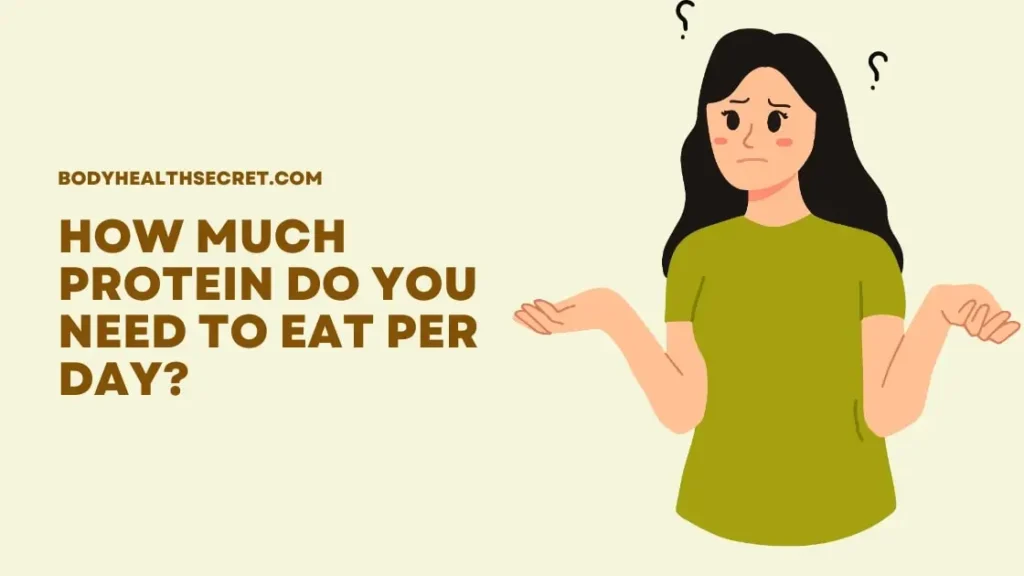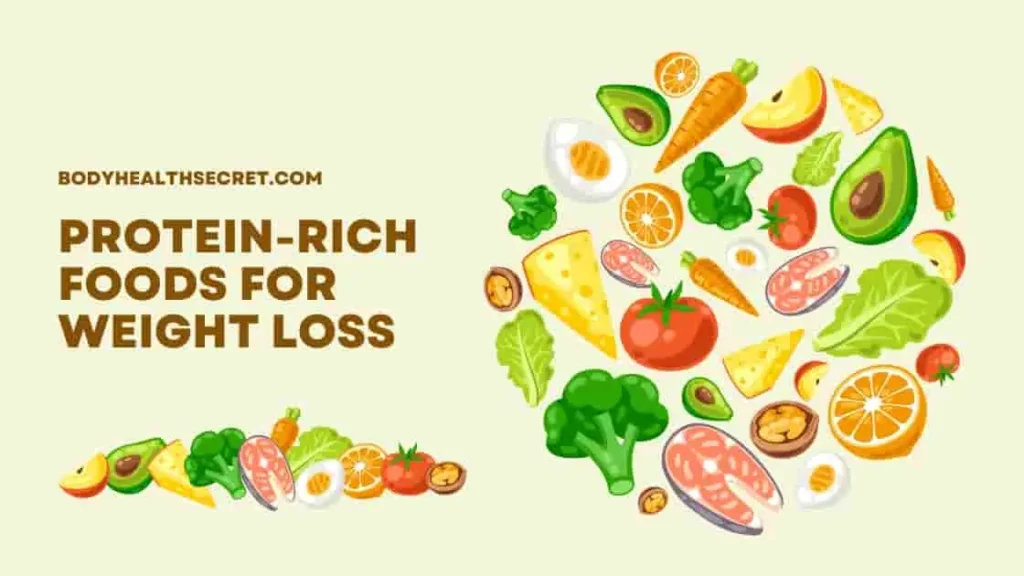1. If you’re trying to lose weight, you may be wondering how much protein you need to eat. Protein is an essential nutrient that can help you maintain muscle mass and feel full, making it an important part of any weight-loss plan.
2. When it comes to weight loss, protein is a key nutrient that can help you achieve your goals. But how much protein do you really need? In this article, we’ll explore the science behind protein intake and weight loss and provide practical tips for incorporating protein into your diet.
3. Losing weight can be a challenging journey, but protein can be a helpful ally along the way. By understanding how much protein you need to eat, you can optimize your weight-loss efforts and preserve muscle mass. In this article, we’ll break down the science of protein and weight loss and provide actionable advice for achieving your goals.
Recommended Protein Intake for Weight Loss
The recommended protein intake for weight loss varies depending on factors such as age, sex, and activity level. However, a general guideline is to consume 1.6–2.4 grams of protein per kilogram of body weight (2.4–3.1 grams per kilogram of fat-free mass). For example, if you weigh 70 kg (154 lbs) and have 10% body fat, your recommended protein intake would be around 1.6–2.4 grams per kilogram of your 60 kg (132 lbs) fat-free mass.
Benefits of Protein: How much protein do you need to eat per day?

Protein is essential for maintaining muscle mass during weight loss, as it helps prevent muscle loss and supports muscle recovery. Additionally, a high-protein diet can boost metabolism and reduce appetite, making it easier to stick to a calorie-controlled diet.
Practical Tips for Incorporating Protein into Your Diet
- Spread your protein intake throughout the day. Aim to consume protein with every meal and snack to ensure a consistent supply of amino acids for muscle maintenance and recovery.
- Choose protein-rich foods: Incorporate a variety of protein-rich foods into your diet, such as lean meats, fish, eggs, nuts, and seeds.
- Consider protein supplements: If you struggle to meet your protein needs through food alone, consider using protein supplements, such as whey protein powder or plant-based protein powders.
A Sample High-Protein Diet Plan for Weight Loss
Here’s a sample high-protein diet plan for weight loss: Breakfast:
- 3 eggs
- 1 piece of whole-grain bread with 1 tablespoon of almond butter
Mid-Morning Snack:
- Mix Greek yogurt with berries and nuts for a snack.
Lunch:
- rice, steamed veggies, and grilled chicken breast
Afternoon Snack:
- Cottage cheese with pineapple and a handful of walnuts
Dinner:
- 6 lbs (170 g) of grilled salmon with spinach and potatoes
Remember, it’s essential to consult with a healthcare professional or registered dietitian before making significant changes to your diet, especially if you have any pre-existing health conditions or concerns.
How Much Protein Should a Female Eat Per Day to Lose Weight?
The importance of Protein for Weight Loss
Protein is an essential nutrient that plays a crucial role in weight loss and muscle maintenance. It helps to preserve muscle mass during weight loss, which is important for maintaining a healthy metabolism and preventing weight gain. Additionally, protein can help to reduce appetite and increase feelings of fullness, making it easier to stick to a calorie-controlled diet.
Recommended Protein Intake for Women
The recommended protein intake for women who are trying to lose weight is 0.8 grams per kilogram of body weight, or around 48 grams per day for a typical woman. However, this amount is just the minimum requirement and may not be enough to support optimal weight-loss results.
Optimal Protein Intake for Weight Loss
To achieve optimal weight-loss results, experts recommend consuming between 1.6 and 2.2 grams of protein per kilogram of body weight. For example, a 150-pound woman would need to consume between 80 and 136 grams of protein per day. Consuming an adequate amount of protein is also important, with many studies connecting a higher protein intake with the ability to lose more weight.
Protein-Rich Foods for Weight Loss

Incorporating protein-rich foods into your diet is an effective way to increase your protein intake. Here are some of the best protein-rich foods for weight loss:
- Lean meats: chicken breast, turkey breast, and bison meat
- Seafood: Salmon, sardines, and other fish fillets
- Chickpeas, lentils, and kidney beans are all types of beans and legumes.
- Soy: Tofu and soy milk
- Low-fat dairy: Cottage cheese, Greek yogurt, and low-fat milk
- Eggs
- Nuts and seeds: Almonds, walnuts, and pumpkin seeds
- Vegetables: Broccoli and quinoa
- Fruits: Berries and apples
- Whole grains: Oats and whole grain bread
Tips for Incorporating Protein into Your Diet
- Spread your protein intake throughout the day. Aim to consume protein with every meal and snack to ensure a consistent supply of amino acids for muscle maintenance and recovery.
- Choose protein-rich foods: Incorporate a variety of protein-rich foods into your diet, such as lean meats, fish, eggs, nuts, and seeds.
- Consider protein supplements: If you struggle to meet your protein needs through food alone, consider using protein supplements, such as whey protein powder or plant-based protein powders.
Conclusion
Consuming the right amount of protein is crucial for women who are trying to lose weight. By following the recommended protein intake and incorporating protein-rich foods into your diet, you can optimize your weight-loss efforts and achieve your goals. Remember to consult with a healthcare professional or registered dietitian before making significant changes to your diet, especially if you have any pre-existing health conditions or concerns.
Frequently Asked Questions
What is the recommended protein intake for weight loss?
The recommended protein intake for weight loss varies depending on factors such as age, sex, and activity level. However, a general guideline is to consume 1.6–2.4 grams of protein per kilogram of body weight (2.4–3.1 grams per kilogram of fat-free mass).
What is a sample high-protein diet plan for weight loss?
Here’s a sample high-protein diet plan for weight loss:
Breakfast:
3 eggs
1 piece of whole-grain bread with 1 tablespoon of almond butter
Mid-Morning Snack:
Mix Greek yogurt with berries and nuts for a snack.
Lunch:
rice, steamed veggies, and grilled chicken breast
Afternoon Snack:
Cottage cheese with pineapple and a handful of walnuts
Dinner:
6 lbs (170 g) of grilled salmon with spinach and potatoes
How can I incorporate protein into my diet?
You can incorporate protein into your diet by consuming a variety of protein-rich foods, such as lean meats, fish, eggs, nuts, and seeds. Additionally, you can consider using protein supplements, such as whey protein powder or plant-based protein powders.
Remember, it’s essential to consult with a healthcare professional or registered dietitian before making significant changes to your diet, especially if you have any pre-existing health conditions or concerns.